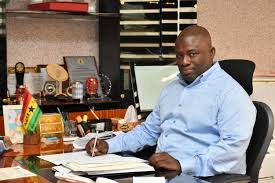SEC Charges Ex-Goldman Investment Banker for FCPA Bribes in Ghana Power Project
Last week, the Securities and Exchange Commission (“SEC”) filed charges against Asante Berko, a former Goldman Sachs executive with bribery of foreign government officials in Ghana. Goldman Sachs discovered and stopped the scheme and then reported it to the government. Goldman Sachs was not charged with the conduct and cooperated with the investigation.

The SEC’s complaint charged Berko with assisting a client, a Turkish energy company, to pay at least $2.5 million in bribes through a Ghana-based third-party intermediary to Ghanaian government officials to secure approval of an electric power plant project in Ghana. (Here). In addition, Berko arranged payments of $200,000 in bribes to various government officials, and Berko paid more than $60,000 to members of the Ghanian Parliament and other government officials to advance his client’s interest in the electric power project.
On May 11, 2015, the Turkish Energy Company and the Ghana Ministry of Power signed a Power Purchase Agreement. On May 19, 2015, the Ghanaian intermediary company sent an invoice to the Turkish Energy Company for an additional $1.5 million for bribery payments. Three days later, the Turkish Energy Company transferred the $1.5 million to the Ghanaian intermediary company.
On July 17, 2015, the Ghana parliament ratified the Power Purchase Agreement; the intermediary company requested an additional $1.5 million for “next crucial steps.” Those funds were needed to pay additional bribes to Ghanaian government officials.

In early August, the intermediary company sent another invoice, copying Berko, for $250,000 needed to pay bribes. In October 2015, the Turkish Energy Company transferred $250,000 to an employee of the intermediary company.
Berko also assisted the intermediary company in paying smaller bribes to various government officials, totaling approximately $210,000. These payments were made to a Ghanaian government officials who assisted a government official on the project, employees at the Ministry of Power who provided confidential information to the intermediary company, government engineers who assessed the Turkish Energy Company’s technology and other officials responsible for reviewing the project.
Berko sought to profit from the bribery scheme an project in two ways – first, he knew that Goldman Sachs’s subsidiary would earn over $10 million in fees if the Turkish Energy Company won the contract, which would enhance Berko’s evaluation and performance review; and second, Berko understood the the Turkish Energy Company would secretly pay him $2 million for executing the bribery scheme.
As alleged by the SEC, Berko sought to disguise the bribery scheme and avoid detection. Berko conducted the bribery scheme using his personal email rather than his work email. In addition, Berko failed to correct a critical document to Goldman Sachs that falsely stated that the Turkish Energy Company had not compensated any intermediaries or any government officials in connection with the power plant.

Goldman Sachs compliance officials reviewed Berko’s emails and discovered the involvement of the third-party intermediary in the project. After interviewing Berko about the third-party’s involvement, they investigated the matter further and questioned the Turkish Energy Company’s executives about the role of the third party in the project. The executives provided incomplete and inaccurate information and failed to disclose the true purpose of the the intermediary company’s role in the project. Eventually, Goldman Sachs terminated its role in the project.















